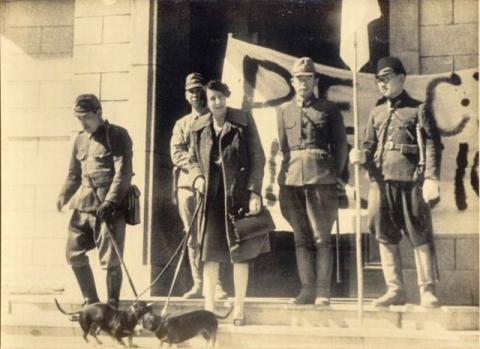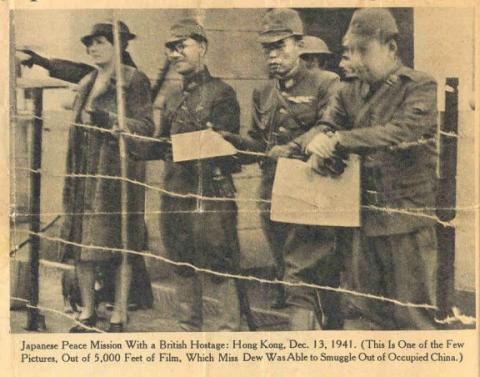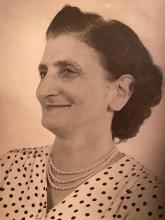In the first hour after midnight the Pacific War begins: the Japanese fleet, which has been making its way towards Malaya since December 4, begins to bombard the beach defences at Khota Bharu at 00.30 a.m. and a quarter of an hour later four lines of landing craft are headed towards the beach. The Japanese air force is still half an hour away from the American base at Pearl Harbour. An Indian force, the 3/17 Dogras, pours an intense fire on the invaders with both artillery and machine guns. These are the first shots fired against the Axis in the Pacific.
In Hong Kong small bombs - probably planted by Chinese fifth columnists - explode during the first two hours of the morning.
At 1.30 a.m. Japan's 2nd China Fleet and 23rs Army army are ordered to attack Hong Kong
At 4.45 Major Charles Boxer of Military Intelligence monitors a Japanese radio broadcast announcing the attack. This is soon confirmed by a British broadcast from Singapore. The order goes out to demolish roads and bridges in the northern New Territories - Hong Kong's first acts of resistance are carried out by men from the Royal Engineers, the Puinjabis, and the Volunteers. At 5 a.m. work starts on the demolition of the Kowloon to Canton Railway, and by 5.30 the forward bridges are blown.
At 7 a.m. Kai Tak airport is warned of an imminent raid, and the enemy aircraft arrive there at about 8 and destroy a few antiquated planes (most but not quite all of Hong Kong's air force). At 10 a.m. a Japanese ground assault from southern China begins: troops are headed for a number of points, including the defensive 'Gin Drinkers Line'. This means that the first British civilians to encounter the invading army are the relatively few in the New Territories.
Mildred Dibden, a 34 year old missionary, is running the Fanling Babies Home, which she founded in 1936. She receives an early telephone warning and gets the 34 older children into a lorry that's sent for them. The lorry hasn't returned for the remaining 54 infants when Japanese soldiers arrive to confront Miss Dibden, her assistant Ruth Little (aged 27) and 17 Chinese nurses and amahs.
A Japanese soldier strikes her across the face with a rifle butt when she tries to stop the rape of a young amah. Cots are overturned and a baby is trampled to death.
Dibben and Little are not interned and the orphanage stays open throughout the war.
The first thing most Hong Kong civilians know about the war is that Japanese planes are attacking Kai Tak airport at about 8 o'clock in the morning.
What happens next depends on where you live and what role you will play in the response to the attack.
In Kowloon, which bears the brunt of the first shelling and air attacks, Aileen Woods and her twin sister Doris are dressing for work when, at about 8 a.m., they hear planes, ack ack guns and the sounds of people running about. At first they think it's a practice, but Aileen eventually picks up a radio broadcast from Singapore saying that there they've been bombed. The sisters make for the ferry but are turned back because they don't have a pass. They return home, and listen to the radio: ZBW (Radio Hong Kong) broadcasts the usual 12.15 prayers and there's dance music between 12.30 and 1.0'clock when the radio goes dead because another raid is starting.
Dr. Isaac Newton has been rung at 6. 25 a.m. and informed that a 'precautionary stage' has been declared, but as he's told that doesn't mean taking any action, he goes back to sleep. He hears the air raid sirens at 8 a.m. and goes quickly to the Kowloon Hospital, arriving at 8.15. The first case is in the operating theatre by 9 a.m. He's hampered by lack of staff for about an hour and a half after that, as no public vehicles are allowed to travel while the raid is on. Over the day the hospital will admit 103 casualties and perform 27 operations.
On Hong Kong Island they're also starting to put emergency plans into operation.
Violet May Witchell is on her way to Bowen Road Military Hospital to start a fortnight's scheduled duty as a volunteer nurse. She's walking along Pok Fu Lam Road to catch the bus when Japanese planes fly over. An army truck pulls up and gives her a lift to the hospital. She doesn't return home until after liberation in 1945.
Thomas Edgar came to Hong Kong in April 1938 as manager of the new Lane, Crawford Bakery in Stubbs Rd, having falsified his birth certificate to seem three years older and more experienced. He's almost certainly already at work by 8 a.m., and begins putting into operation plans he's been making since November 1938 when he was told not to join the Volunteers but to get his bakery ready for any 'emergency'. Some time during the day he's officially appointed Deputy Supply Officer Bakeries.
Government employee Phyllis Harrop is woken at 5.30 by the telephone and told that 'the worst had happened':
In the course of the last few weeks I have been taken off my hospital job and told that I was required for more important work, but nothing else had been said to to me except that if and when anything happened I was to report to Police Headquarters immediately.
She's ordered down to the shelters for the first air raid; in the afternoon she takes Andrew Gilmour of the Malayan Colonial staff to the Naval Dockyard and then drives to her Chief's house on the Peak to collect blankets and clean clothes for him - he's decided they're all sleeping in the office that night as they're too busy to go home. The last raid is at about 9.30 p.m., and they turn in on camp beds at about 11.
The Irish Jesuits, although technically neutral and soon to be busy with their religious duties, will show themselves ready to help the defence in non-military ways. Father O'Mara volunteers to help Billeting Headquarters. They're already having problems because it's hard to get petrol. He's at HQ (the Nippon Building, close to the Naval Dockyard, one of the main targets for shelling), waiting to take some Volunteer dependants to their billets; cars are promised:
The people arrived, women and children and old men, but the cars did not. It was 6.15 ((p.m.)). An hour passed. It was quite dark and no one knew when an air-raid might come. (It turned out fortunately that there was no night bombing, but we did not know that then). The people sat on their luggage and waited; some of the babies cried. At 8.15 the buses arrived.
That was billeting on the first day. It was an inauspicious beginning.
Food Control has its problems too. Under Emergency Powers all food supplies are under government control and institutions with resident inmates - hospitals, children's homes, boarding schools etc. - are supplied from government depots, an allocation being made for each resident after forms are filled in. Members of the auxillary defence services, including Essential Workers, can eat at certain restaurants, including the Cafe Wiseman, in the Exchange Building, the Lane, Crawford headquarters in Des Voeux Rd. The poorer Chinese, many of whom now lose their day-labouring jobs, are to be fed from food kitchens. There's plenty of food in Hong Kong, but, as the civilian transport system breaks down quickly, it's hard to get it to where it's needed, as the next section indicates.
The Redwood family are woken up by a Chinese clerk at 6.30 a.m. Barbara's told to be at the ARP office at 7. Soon after they hear the air raid sirens and are now certain what's happening. Olive hurries off to the Food Control Office and Mabel to her Army job. Mrs. Redwood eventually takes up her post at the emergency hospital in the Happy Valley Jockey Club. Before the end of the day the problems faced right from the start by the wartime administrators have become clear to her:
The Food Control Department had long since made plans for emergency feeding, and godowns (warehouses) all over the Colony were well stocked with food, but the suddenness of the attack and consequent congestion on the roads caused delays in deliveries. Eventually some sacks of rice arrived, but by the time we managed to get it cooked and distributed, the time was seven in the evening.
But not everyone has an assigned role in the defence.
Quaker missionary William Sewell has just been reunited with his wife Mary and their three young children (two girls and a boy). They are with friends at a house at the foot of the Peak, getting ready to fly to Free China. As they are only passing through, they have no role in the long-prepared plans for the defence of the colony. The Sewells' task is to comfort and care for their children.
In the UK the headlines are of course about Pearl Harbour. But The Daily Mirror does offer this snippet on its last page:
The Governor of Hong Kong issued a proclamation calling out volunteers.
That was yesterday. Today those Volunteers have started to go into action.
Sources:
Times of early events in Hong Kong Tony Banham, Not the Slightest Chance, 2003, 26-28; The Battle of Hong Kong 1941: A Spatial History Project at https://digital.lib.hkbu.edu.hk/1941hkbattle/en/map.html
Dibden and Little: Susanna Hoe, The Private Life of Old Hong Kong, 1991, 275; see also http://brianedgar.wordpress.com/2013/07/29/mildred-dibden/
Woods: John Luff, The Hidden Years, 1967, 39
Newton: Alan Birch and Martin Cole, Captive Christmas, 1979, 7; 17
Witchell: Lady May Ride, in Sally Blyth and Ian Wotherspoon, Hong Kong Remembers, 1996, 11
Edgar: Article in British Baker, September 13, 1946, viewable at http://brianedgar.wordpress.com/2011/10/18/thomas-edgar-some-documentation/
Harrop: Phyllis Harrop, Hong Kong Incident, 1943, 67-68
Father O'Mara: Thomas F. Ryan, Jesuits Under Fire In The Siege Of Hong Kong, 1944, 16
Food Control: G. B. Endacott and Alan Birch, Hong Kong Eclipse, 1978, 111; Cafe Wiseman - Wenzell Brown, Hong Kong Aftermath, 1943, 24
Redwood family: Mabel Winifred Redwood, It Was Like This, 2001, 71
Sewell family: William Sewell, Strange Harmony, 1948, 11-14





